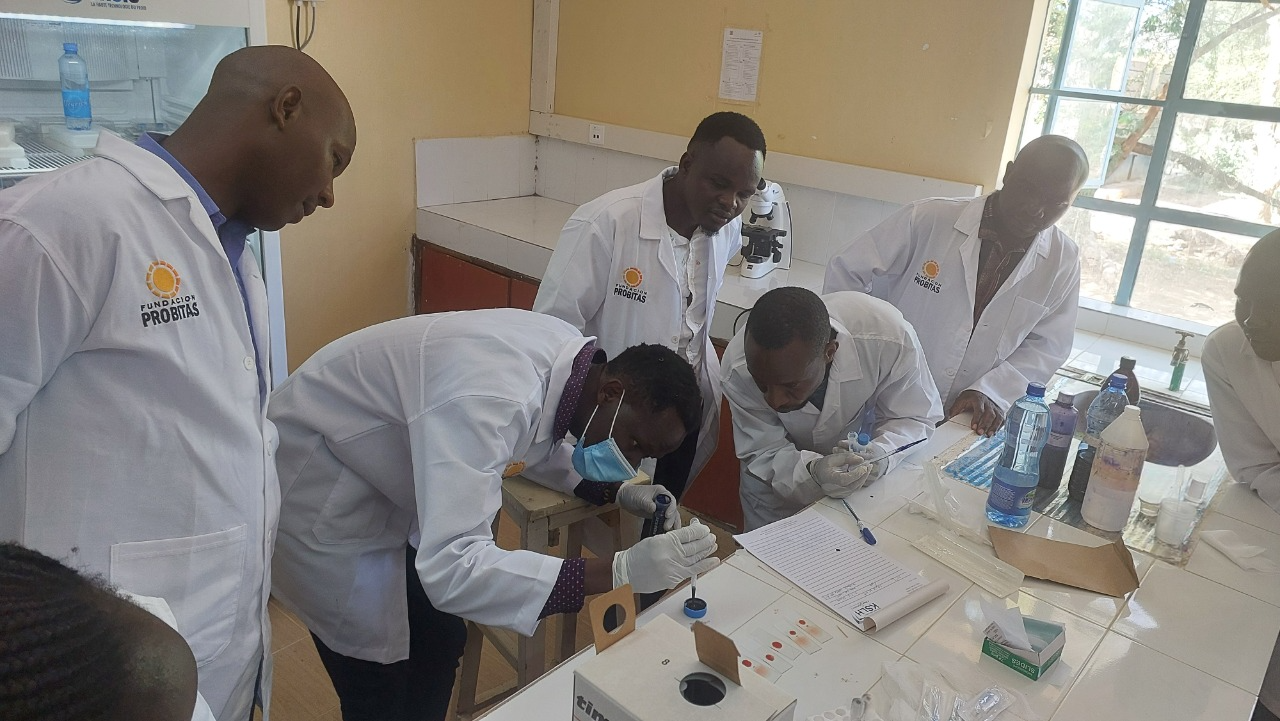Training Laboratory Technicians in Kenya to Improve Diagnostic Quality
Training Laboratory Technicians in Kenya to Improve Diagnostic Quality
May 15, 2025
This training, delivered by Dr. Lidia Goterris, a specialist in the Microbiology Department at Vall d’Hebron University Hospital, and Daniel Njenga, a medical scientist at the Kenya Medical Research Institute (KEMRI), enabled the technicians to update and enhance their knowledge in hematology, parasitology, and microbiology, as well as in key techniques to ensure accurate diagnoses, hygiene and safety, quality control, and basic management.
The results of pre- and post-training tests revealed that the technicians made the greatest progress in parasitology, hygiene, and laboratory management. It was also a mutual and two-way learning experience, as both Dr. Goterris and trainer Daniel Njenga expanded their own knowledge through the process.
As part of their commitment to creating a positive impact in the community and improving healthcare facilities and systems, the participating technicians established a knowledge-sharing group and a mutual support forum. The aim is to help solve potential issues related to equipment, shortages of reagents, and data interpretation.
This training initiative has strong long-term potential, as the ten technicians—previously selected by the Baringo Ministry of Health—will soon take on the role of training additional healthcare professionals, thereby expanding the skills and capacity of the local health workforce.

Strengthening Three Laboratories
This training marks the final phase of a project to strengthen three laboratories in remote rural areas of Baringo County, which began in 2023 in collaboration with the local organization Kaperur.
We have rehabilitated and equipped the laboratory at Chemolingot Hospital—now conducting over 1,100 tests per month—as well as two additional laboratories at the Churo and Kolowa Health Centers. These enhancements have significantly improved access to faster and higher-quality diagnostics for residents of these remote communities, eliminating the need for long and often difficult journeys.
